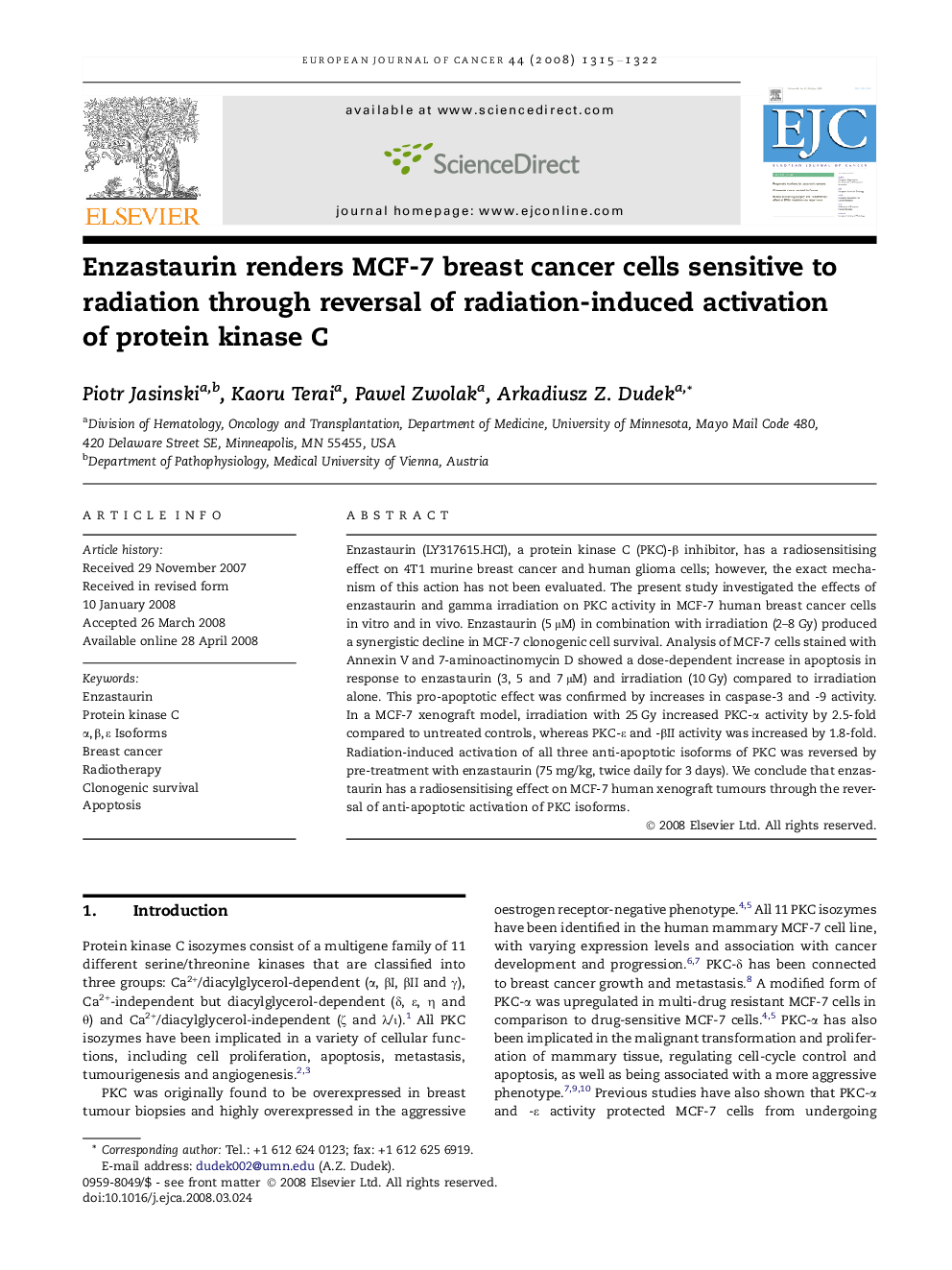| Article ID | Journal | Published Year | Pages | File Type |
|---|---|---|---|---|
| 2124253 | European Journal of Cancer | 2008 | 8 Pages |
Abstract
Enzastaurin (LY317615.HCI), a protein kinase C (PKC)-β inhibitor, has a radiosensitising effect on 4T1 murine breast cancer and human glioma cells; however, the exact mechanism of this action has not been evaluated. The present study investigated the effects of enzastaurin and gamma irradiation on PKC activity in MCF-7 human breast cancer cells in vitro and in vivo. Enzastaurin (5 μM) in combination with irradiation (2-8 Gy) produced a synergistic decline in MCF-7 clonogenic cell survival. Analysis of MCF-7 cells stained with Annexin V and 7-aminoactinomycin D showed a dose-dependent increase in apoptosis in response to enzastaurin (3, 5 and 7 μM) and irradiation (10 Gy) compared to irradiation alone. This pro-apoptotic effect was confirmed by increases in caspase-3 and -9 activity. In a MCF-7 xenograft model, irradiation with 25 Gy increased PKC-α activity by 2.5-fold compared to untreated controls, whereas PKC-ε and -βII activity was increased by 1.8-fold. Radiation-induced activation of all three anti-apoptotic isoforms of PKC was reversed by pre-treatment with enzastaurin (75 mg/kg, twice daily for 3 days). We conclude that enzastaurin has a radiosensitising effect on MCF-7 human xenograft tumours through the reversal of anti-apoptotic activation of PKC isoforms.
Related Topics
Life Sciences
Biochemistry, Genetics and Molecular Biology
Cancer Research
Authors
Piotr Jasinski, Kaoru Terai, Pawel Zwolak, Arkadiusz Z. Dudek,
